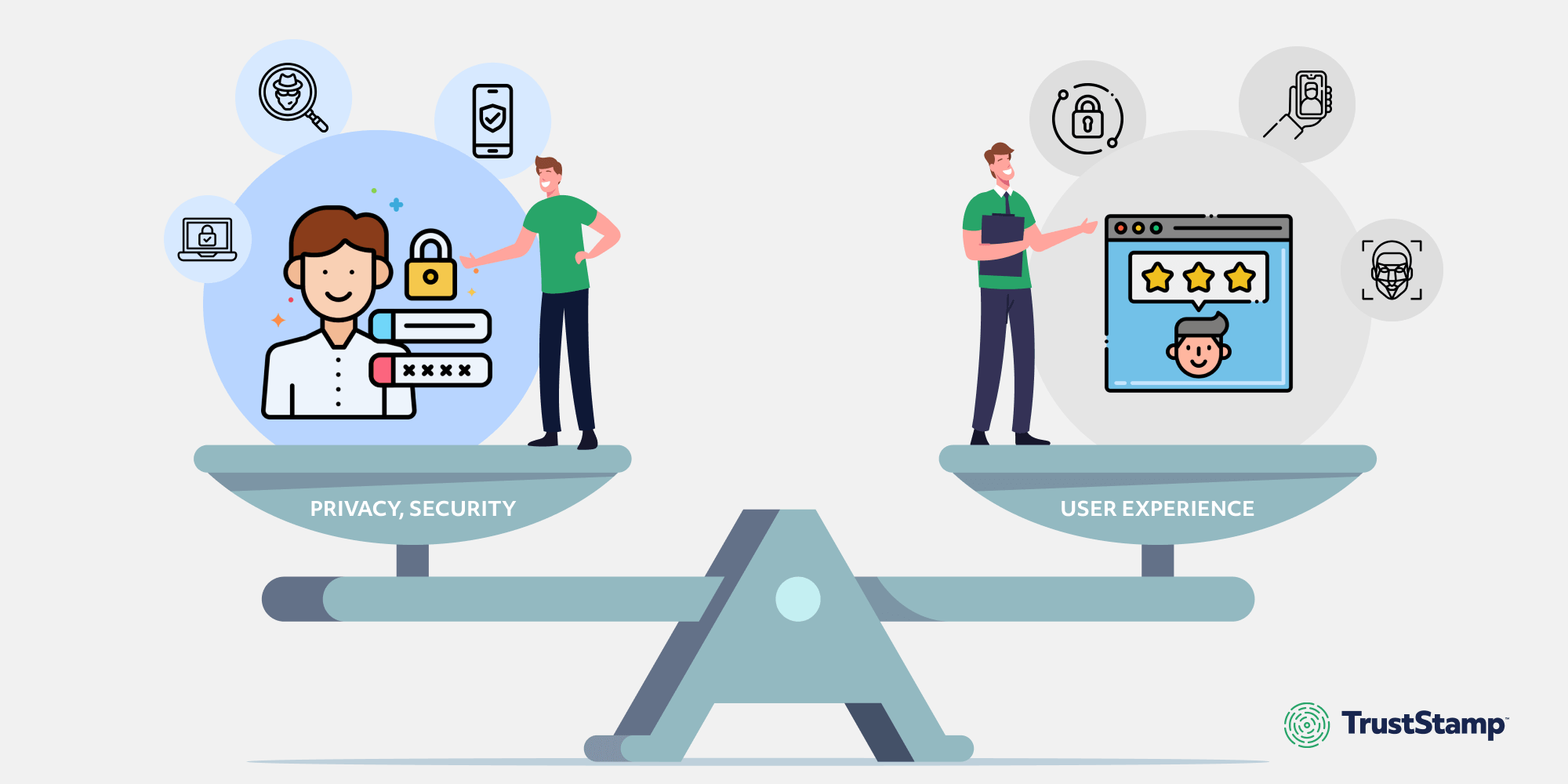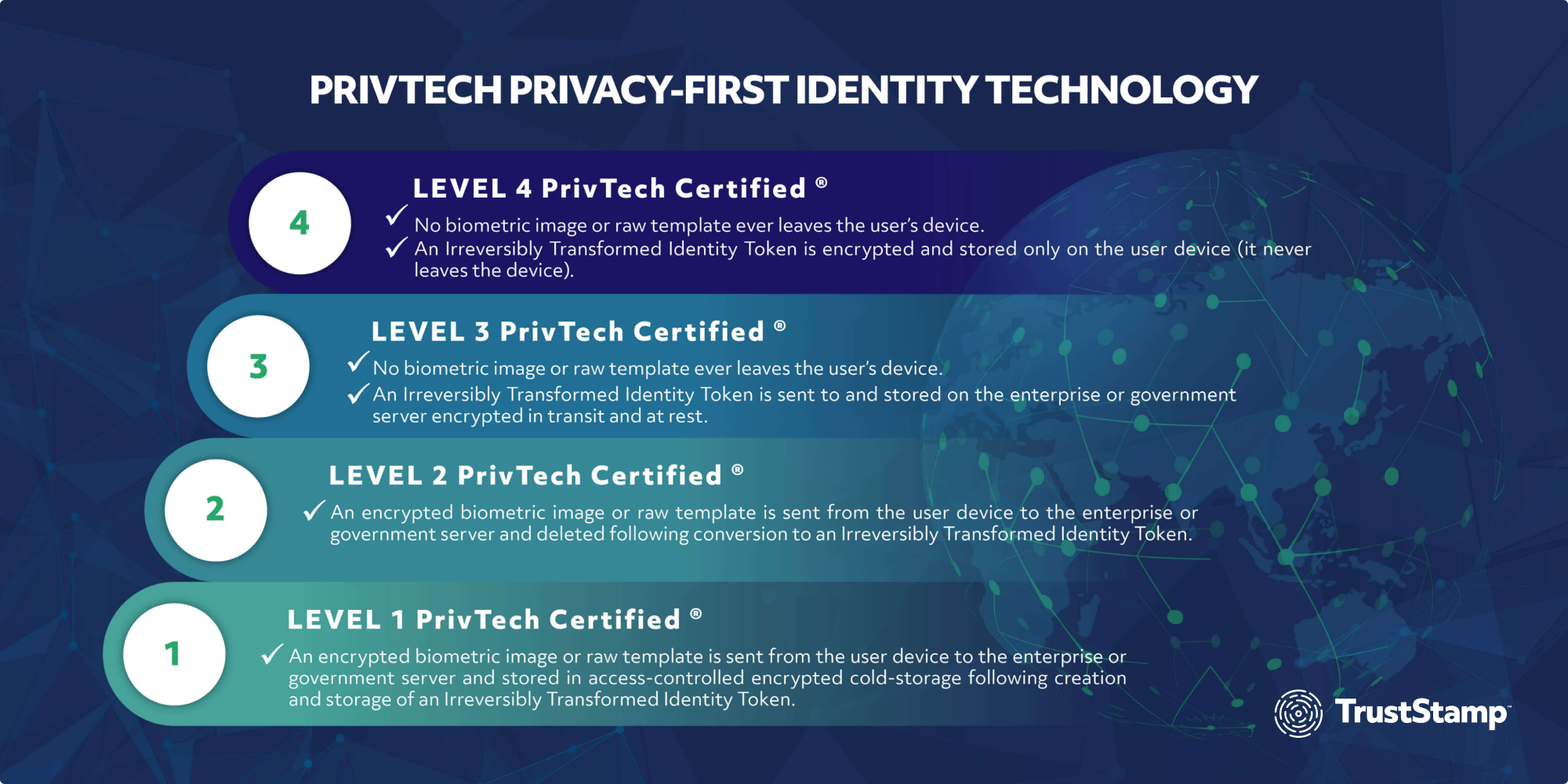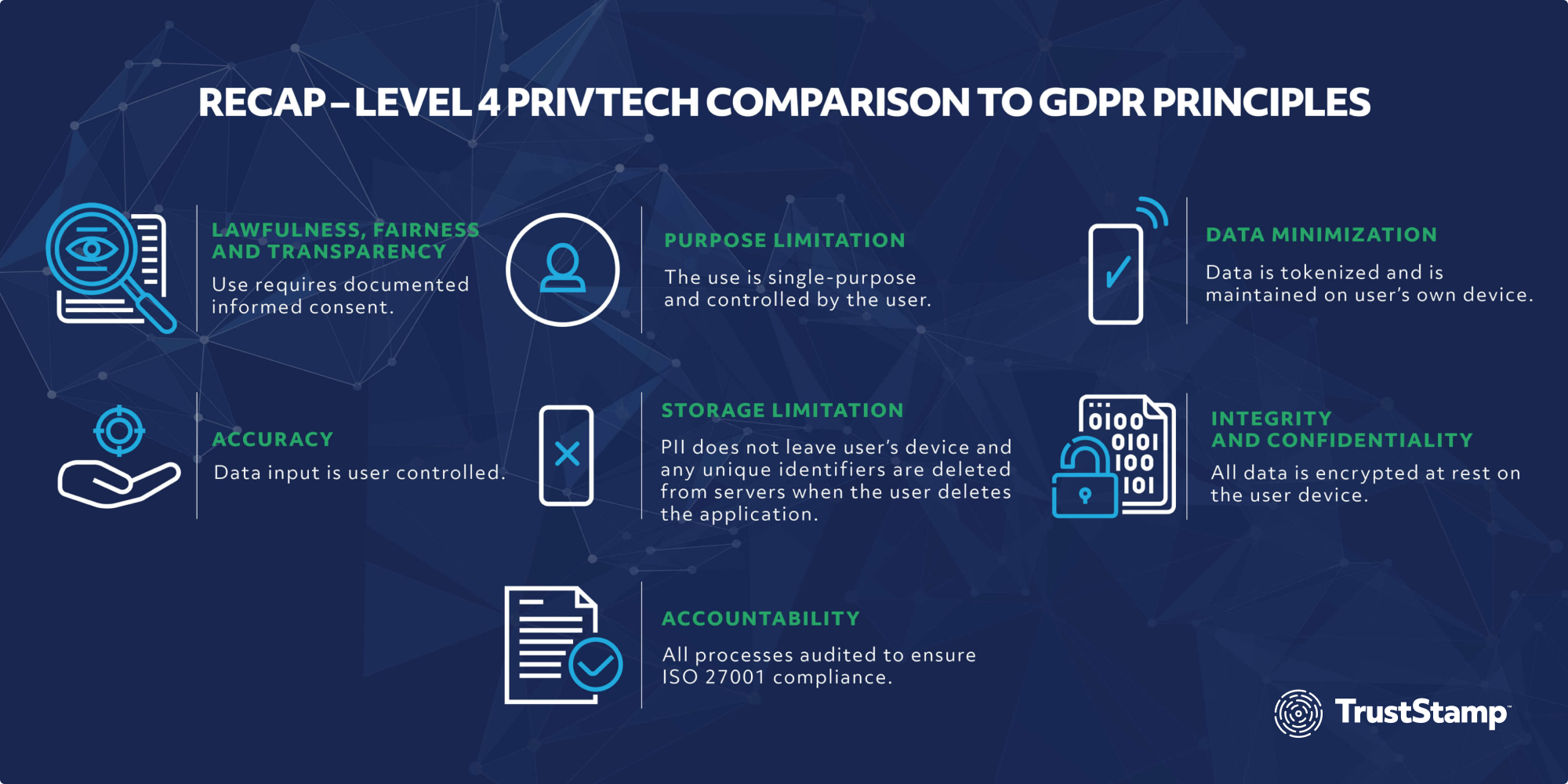As the world continues its relentless march toward digital transformation, government services are increasingly delivered through digital means. This improves efficiency in the delivery of essential government services.
With increased digitalization, also identity fraud risk has increased. Governments combating these risks have looked to advanced forms of identification, such as biometrics. However, these systems raise concerns about the collection of biometric data by government agencies and their third-party providers.
From a privacy standpoint, biometric data collection by governments, even if performed with the best intentions, is subject to scrutiny for fear of:
- Secondary uses: reusing biometric data in unintended ways. When biometric data and other identifying information are collected and stored, all personally identifying information (PII) is linked. Unintended secondary uses can be used for illegal surveillance or inequitable denial of services.
- Data breaches: unauthorized access to biometric data can be exceptionally harmful because people cannot update or change their biometrics, unlike passwords. Once breached, always breached.
Moreover, relying on third-party private vendors who often develop and provide biometric systems also exacerbates privacy concerns. These private companies control users’ sensitive information. Depending on how the systems are designed, they can access biometric data and potentially other personal information. Therefore, requiring users to share sensitive data with a third party to obtain government services raises concerns about their data privacy. Who will access it, and how will it be used over time?
Balancing Privacy, Security, and User experience

The quest to improve efficiency through digital transformation has raised new issues that impact user experience, personal privacy, and security. User identification and authentication are central to ensuring that the right people receive the right services. But how can individuals keep control over their digital identities while still being able to verify their identities in a convenient and trustworthy way? In particular, most government agencies are looking to balance secure and efficient interaction with minimal intrusion into a user’s privacy.
A decentralized identity solution puts the control in the hands of the user. This way, individuals become the custodians of their own verified information, collected from certified issuers and stored by the user. Individuals can then share their identity with service providers as needed, maintaining their independence and preserving the privacy of their data.
But how can government agencies effectively verify a user’s identity without compromising privacy? That’s where the Trust Stamp’s new government-focused privacy-first identity technology solution, PrivTech, comes in. It allows government agencies to provide authenticated users with secure digital access using PrivTech Certified technology.
Reasons Government Agencies Should Implement PrivTech Privacy-First Identity Technology
- It replaces biometric images and templates with Irreversibly Transformed Identity tokens (IT2).
- It provides government agencies and enterprise users with a range of processes to minimize the collection and storage of biometric data.
- It does not require biometric or other personal data to be processed or stored by a biometric service provider or other third parties.
- It provides end-users transparency regarding the use and disposition of their biometric data.
- It reduces financial and reputational risks from data breaches and leaks.
Benefits for Users and Government Agencies
PrivTech offers four customizable levels of privacy protection using the existing Privtech Certified® Trust Stamp framework and provides government agencies with the ability to verify identity and protect against fraud while minimizing the data collected and ensuring transparency about its use.

PrivTech solutions are designed to meet government-specific needs. Unlike biometric systems commonly used today, PrivTech Level Four does not require the intermediation of data by a private sector vendor and does not require the user to provide biometric data to the agency.

Trust Stamp’s PrivTech Certified products define a new privacy-first approach to interactions between everyday users and government agencies.
Contact Trust Stamp today to learn more about how PrivTech can help improve user identification, authentication, and user experience and prevent fraud, ensuring your data security while protecting the privacy of your users.

